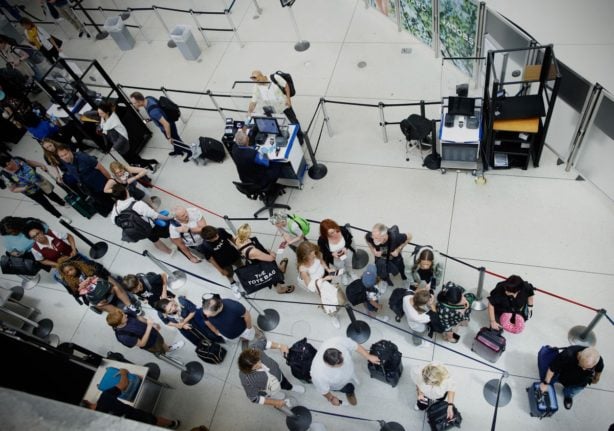Swiss trains are usually reliable and efficient, but occasionally (as now) things happen to disrupt the rail traffic.
This is what you can expect in coming weeks in the French-speaking part of the country, according to the Swiss national railways company (SBB):
Between Vaud and Valais
A number of trains will be canceled between the two cantons from July 22nd and August 14th.
Des travaux d’entretien dans l’arc lémanique nécessitent des modifications d’horaire ces prochaines semaines. Il est conseillé de consulter l’horaire en ligne avant le voyagehttps://t.co/7wcc7wSbR8
— Relations médias CFF (@presse_CFF) July 18, 2024
SBB doesn’t specify which trains will be impacted, but recommends that people planning to travel on that route in the next three weeks consult the online timetable or the SBB app.
In Vaud
Until August 19th, one connection out of the six that usually run each hour and each direction (IR90 ‘non-stop’ trains) have been dropped between Geneva Airport and Lausanne to allow maintenance of the track on approximately seven kilometres of track between Renens and Denges.
Timetable adjustments of a few minutes are being implemented for other trains on that route.
One lane is closed along the 3-kilometre-long track between Montreux and Villeneuve.
This means that certain IR90 trains will be suspended until August 14th.
Note too that some regional trains are replaced by buses for the duration of the works.
Signs to that effect are placed in stations and announcements are broadcast by loudspeaker.
The disruptions on the domestic SBB lines this summer are not, however, as extensive as the ones on a wider international netrwork:
READ ALSO: Why you should not rely on trains to and from Switzerland this summer



 Please whitelist us to continue reading.
Please whitelist us to continue reading.
Member comments